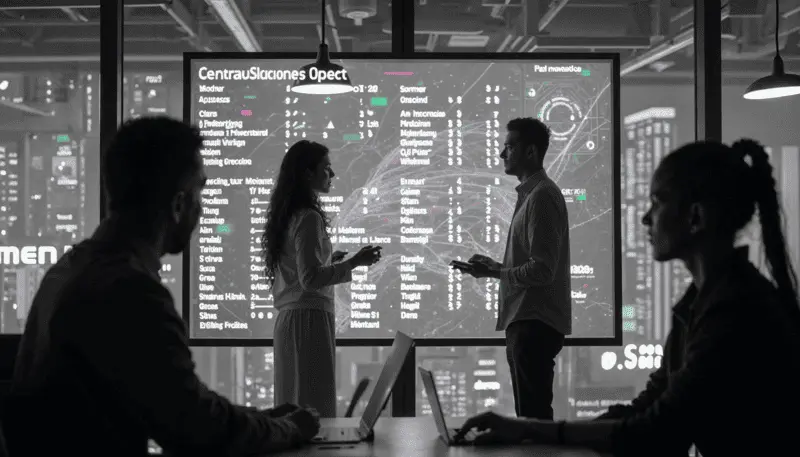The financial industry is no stranger to technological innovation. From the advent of online banking to the use of complex algorithms for stock trading, finance has continuously evolved with advancements in technology. However, with the rise of artificial intelligence (AI), there is growing concern about whether these new technologies will take jobs in finance, displacing human workers.
Will AI take jobs in finance? It’s a question many finance professionals are asking as AI becomes more prevalent in tasks like data analysis, fraud detection, and even customer service. Let’s dive into how AI is shaping the finance sector, its impact on jobs, and what the future holds for professionals in the industry.
AI in Finance: Where It’s Already Making an Impact
Artificial intelligence is already making waves in the financial sector, automating a wide range of tasks that were traditionally performed by humans. Here are a few key areas where AI is being integrated:
1. Automating Routine Tasks
AI is highly effective at automating repetitive and routine tasks, such as data entry and reconciliation, which are common in accounting and finance departments. Automated software can now process invoices, manage payroll, and even perform auditing tasks more accurately and efficiently than human employees.
2. Trading Algorithms
One of the earliest applications of AI in finance has been in trading. AI algorithms can analyze massive amounts of data in real-time, identify market trends, and execute trades faster than any human trader ever could. High-frequency trading, for example, relies heavily on AI to gain a competitive edge in the market.
3. Fraud Detection and Risk Management
AI is enhancing fraud detection by analyzing patterns in transaction data to flag suspicious activities. Traditional systems might miss anomalies that AI can catch in seconds. Similarly, AI-powered risk management tools are being used to assess credit risk and forecast potential financial disruptions.
4. Customer Service
AI-powered chatbots and virtual assistants are increasingly handling customer service inquiries in banks and financial institutions. They can answer questions, provide financial advice, and even help customers manage their accounts without the need for human intervention.
The Fear of Job Displacement: Is It Justified?
While the benefits of AI in finance are clear, they also raise questions about job displacement. Some roles, particularly those involving repetitive tasks, are at risk of being replaced by AI. For example, jobs in data entry, basic accounting, and even some customer-facing roles may become automated.
Jobs at High Risk
- Tellers and Clerks: With AI automating customer service and transactions, bank tellers and administrative clerks may find their roles diminished.
- Junior Analysts: Many junior analyst positions involve data collection and basic analysis, tasks that AI can now perform efficiently.
- Loan Officers: AI is increasingly being used to assess creditworthiness, making human loan officers less critical in some lending decisions.
Despite these risks, not all jobs in finance are under immediate threat. In fact, AI is likely to complement human roles, particularly those that require higher-order thinking and decision-making.
Jobs AI Can’t Replace: The Human Touch
There are several areas in finance where the human element remains irreplaceable. While AI can handle data processing and pattern recognition, it lacks the emotional intelligence, creativity, and complex decision-making skills that humans bring to the table.
1. Relationship Managers and Financial Advisors
Building relationships with clients and offering tailored financial advice is something AI cannot fully replicate. Financial advisors and relationship managers are crucial in providing personalized service, understanding client needs, and guiding them through complex financial decisions.
2. Strategic Decision-Making
AI can analyze data and make recommendations, but it cannot formulate business strategies or make judgment calls based on incomplete information. Senior finance professionals, such as CFOs, are responsible for high-level decision-making that considers both data and human factors.
3. Risk Assessment Beyond Data
AI can analyze risk, but it cannot assess the full spectrum of factors that influence financial risk, such as geopolitical events, market sentiment, or changes in consumer behavior. Human judgment is critical in these situations.
Adapting to the AI Era: Upskilling for Future Finance Jobs
For finance professionals concerned about AI taking over their jobs, the key to staying relevant lies in upskilling. Rather than seeing AI as a threat, finance workers can view it as an opportunity to enhance their careers by learning how to work alongside these technologies.
Skills to Focus On:
- Data Literacy: Understanding how to interpret and work with data will be essential as AI becomes more integrated into finance.
- AI and Machine Learning: Learning how AI works and how it can be applied in finance will open up new opportunities.
- Emotional Intelligence: Developing strong interpersonal skills will be critical for roles that require client interaction and relationship-building.
- Strategic Thinking: AI can handle tasks, but humans are still needed to create strategies and make decisions that require judgment and foresight.
Conclusion: Will AI Take Jobs in Finance?
So, will AI take jobs in finance? The answer is complex. While AI will certainly automate some roles and transform how tasks are done, it is unlikely to completely replace humans in the finance sector. Instead, AI will complement the work of finance professionals, handling routine tasks while allowing them to focus on higher-level, strategic responsibilities.
As AI continues to evolve, finance professionals should focus on building skills that AI cannot replicate, ensuring that they remain essential in a tech-driven future.
Are you ready to future-proof your career in finance? Explore our guide on how to upskill for the AI era and stay ahead of the curve in a rapidly changing industry.





